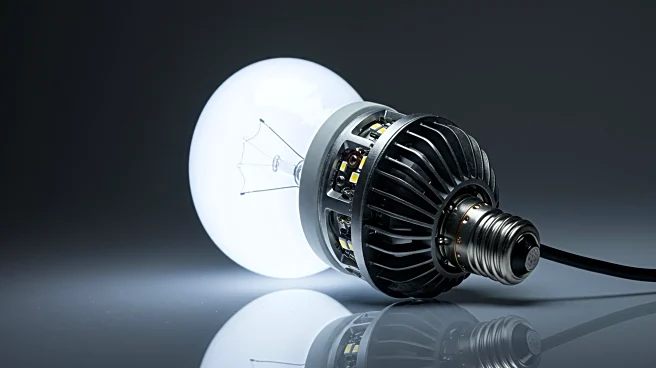What's Happening?
The LED lighting industry is facing scrutiny over the reliability and longevity of its products. Despite promises of energy savings and long lifespans, many LED lights fail sooner than expected. Factors contributing to this issue include heat, poor installation, and quality control problems. Manufacturers often advertise lifespan estimates based on internal testing, which may not reflect real-world conditions. Additionally, the electrical components within LED bulbs, such as drivers and converters, are prone to failure, especially in high heat or humidity environments. Consumers are advised to choose reliable brands and consider installation conditions to maximize the lifespan of their LED lights.
Why It's Important?
The reliability of LED lighting is crucial for consumers seeking energy-efficient solutions. Premature failure of LED bulbs can lead to increased costs and reduced trust in smart lighting technologies. This issue impacts both residential and commercial sectors, where lighting efficiency is a key component of energy management strategies. As consumers become more aware of these challenges, manufacturers may face pressure to improve product quality and transparency in lifespan claims. The situation also highlights the importance of proper installation and environmental considerations in achieving the full benefits of LED lighting.
What's Next?
Manufacturers may need to address these reliability issues by enhancing quality control and providing clearer lifespan information. Consumers might demand more robust products and better guidance on installation practices. The industry could see increased competition as brands strive to differentiate themselves through improved reliability and customer satisfaction. Additionally, advancements in LED technology and materials could lead to more durable products, potentially reshaping consumer expectations and market dynamics.
Beyond the Headlines
The challenges faced by the LED lighting industry may prompt broader discussions on sustainability and consumer rights. As energy efficiency becomes a priority, the reliability of smart lighting solutions is critical. This situation could lead to regulatory scrutiny and the development of industry standards to ensure product quality and consumer protection. Furthermore, the emphasis on reliable lighting solutions may drive innovation in related technologies, such as smart home systems and energy management tools.









